

As 2024 winds down, like most cinephiles, we’re looking to get our eyes on titles that may have slipped under the radar or simply gone unseen, so—as we do each year—we’re sharing a rundown of the best titles available to watch at home.
Curated from the Best Films of 2024 So Far list we published for the first half of the year, it also includes films we’ve enjoyed the past few months and some with which we’ve recently caught up. While our year-end coverage is still to come, including our staff’s top 50 films of 2024, this streaming guide will hopefully be a helpful tool for readers to have a chance to find notable – perhaps underseen – titles of late.
Note that we’re going by U.S. releases and that streaming services are limited solely to the territory as well. If you want to stay up-to-date with new titles being made available, check out our weekly column. In the meantime, see our rundown below, which will be updated as new titles hit streaming services, so make sure to bookmark. And be sure to catch up on recommended theatrical releases here.
The Beast (Bertrand Bonello)

Where to begin with Bertrand Bonello’s wonderful The Beast? It’s been so gratifying to see the initial reaction to the French filmmaker’s tenth feature, after several decades of increasingly remarkable work––the majority of it dark, beautiful, and sleazy. In fact, for what a discomforting and despairing experience much of The Beast is, when I’ve thought back its moments of real, uncomplicated cinematic pleasure, its verve and sense of joyousness, are what mark my memories. It’s romantic, without a capital-R. – David K. (full review)
Where to Watch: The Criterion Channel, VOD
Between the Temples (Nathan Silver)
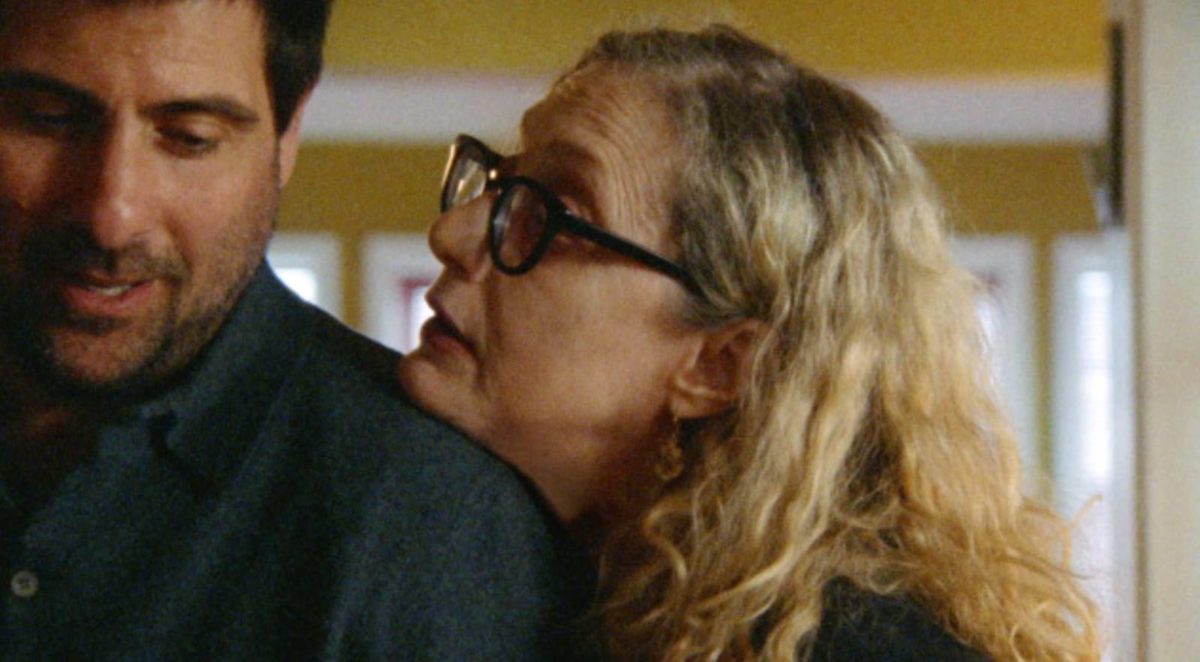
In a state of arrested development after his wife unexpectedly died from a freak accident, Ben Gottlieb (Jason Schwartzman) is suicidal, pleading to a truck to just run him over and begging that he be fired from his job as cantor at the local Jewish temple in upstate New York. While this set-up may not scream comedy, Between the Temples is in fact hilarious, packed with endless jokes and adoration for physical gags while we witness Ben find new meaning in life through an unexpected acquaintance. Above all, Nathan Silver’s feature, from a script he co-wrote with C. Mason Wells,is a thrillingly alive, nimble piece of filmmaking: shot on 16mm by Sean Price Williams with faces of its ensemble guiding every movement, and edited by John Magary with a frenetic yet defined rhythm, Between the Temples is a witty, biting portrait of finding one’s footing in both faith and friendship. – Jordan R. (full review)
Where to Stream: VOD
Chime (Kiyoshi Kurosawa)
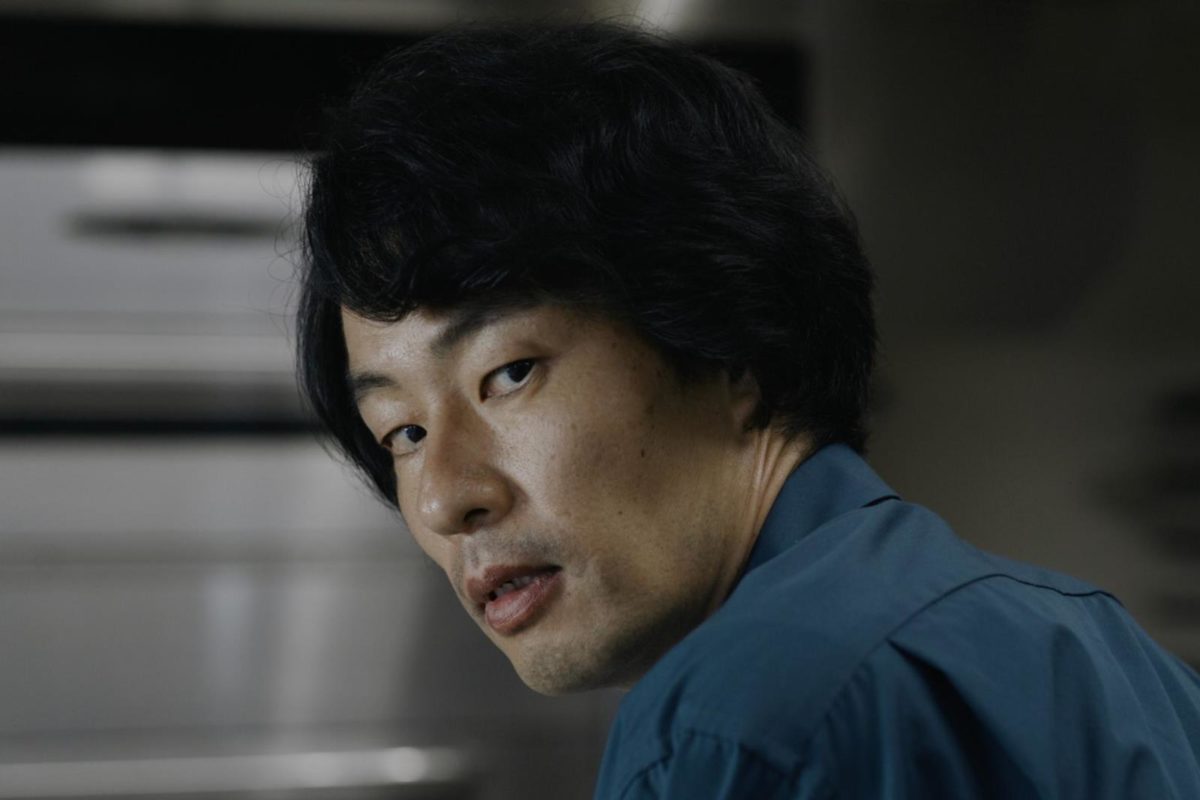
How do you even start to write about Chime, a film that keeps secrets guarded and lives off the shocks of its knife-edge turns? It’s safe to say the director is Kiyoshi Kurosawa. It’s also safe to say Chime is 45 minutes long, making it feel more like the pilot for a TV series we’ll never see––only adding to the intrigue. Like much of the director’s work, it’s the kind of thing you could have seen late night on television when you were much too young. It would have also left a mark. – Rory O. (full review)
Where to Watch: Roadstead
Coma (Bertrand Bonello)
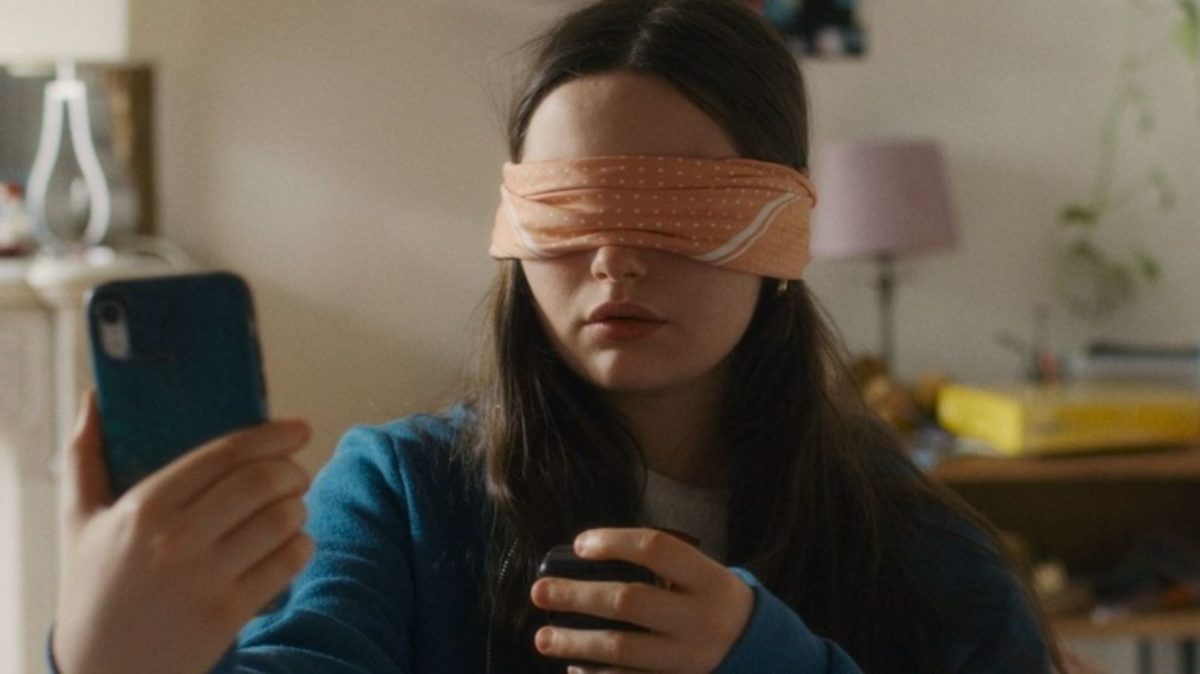
A contemporary cliché that weakly attempts to diagnose what ails us in modern life is the idea of being addled by technology––of our minds and attention spans swamped by screens, content, scrolling. But as the pandemic hit this notion gained a new relevance: it’s not that the virtual realm of content and media was luring us away from our reality––faced with an indefinite lockdown, it had finally become our sole one. Even though this can be poorly rendered by some, it’s the more sensitive and aware artists, such as Bertrand Bonello with his new feature Coma, that remind of the urgency to confront it. – David K. (full review)
Do Not Expect Too Much From the End of the World (Radu Jude)

Long before the formal somersaulting of his 2021 Berlinale winner Bad Luck Banging or Loony Porn, the Romanian director’s films have hopscotched across genres and tones, weaving together the vernaculars of essay films, documentaries, and archives into projects that unfurl like mosaics. Do Not Expect Too Much from the End of the World follows in their footsteps. A collage perched between road movie and black comedy, Jude’s latest is another effervescent study of life in the 21st century, a work that’s engineered to both sponge something of our screens-infested zeitgeist and interrogate its textures. Few filmmakers are so reliably able to conjure snapshots of modern capitalism and its neuroses; fewer still can douse those documents with so much playfulness and wonder as Jude. – Leonardo G. (full review)
Evil Does Not Exist (Ryusuke Hamaguchi)

Amongst a typically raucous lineup at this year’s Venice Film Festival comes Evil Does Not Exist, a work in which tensions rise over little more than the placement of a septic tank. It’s the latest from director Ryusuke Hamaguchi and his first since 2021’s miraculous double-punch of Wheel of Fortune and Fantasy and Drive My Car. Evil concerns a clash of urban and rural sensibilities: a story about a small but hardy group of people who wish to stop the development of a glamping site. Devotees of Kelly Reichardt’s sylvan melancholies will feel perfectly at home. – Rory O. (full review)
Where to Watch: The Criterion Channel, VOD
The Feeling That the Time for Doing Something Has Passed (Joanna Arnow)
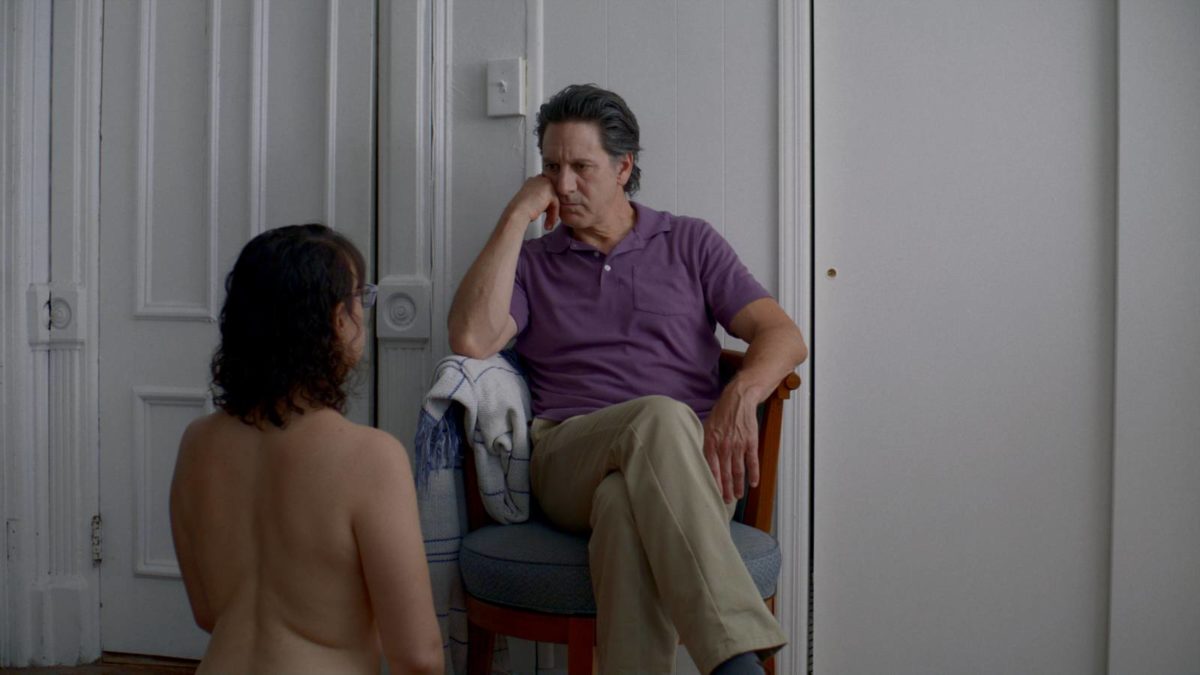
In The Feeling That the Time for Doing Something Has Passed, Ann, a lugubrious New Yorker, sleepwalks through her daily life––colorless job, perennially disappointed parents––while maintaining a long-term sub/dom relationship with an older man. She visits her Jewish family, goes to yoga, and attempts some Internet dating. Invariably she winds up in her boyfriend’s lifeless brownstone. Executive produced by Sean Baker, this is the feature debut of writer-director Joanna Arnow, a Brooklyn-based actor and filmmaker who made a name for herself as a wry observer of millennial sex lives and stasis with a couple of award-winning shorts: Bad at Dancing (2015) and Laying Out (2019). In Dancing, Arnow sat naked on the floor, casually asking for advice from a friend having sex right in front of her. The sense that everyone around you is getting their shit together (and maybe getting laid) is present again here; yet eight years hence, it arrives with the added humility of lived experience. – Rory O. (full review)
Free Time (Ryan Martin Brown)
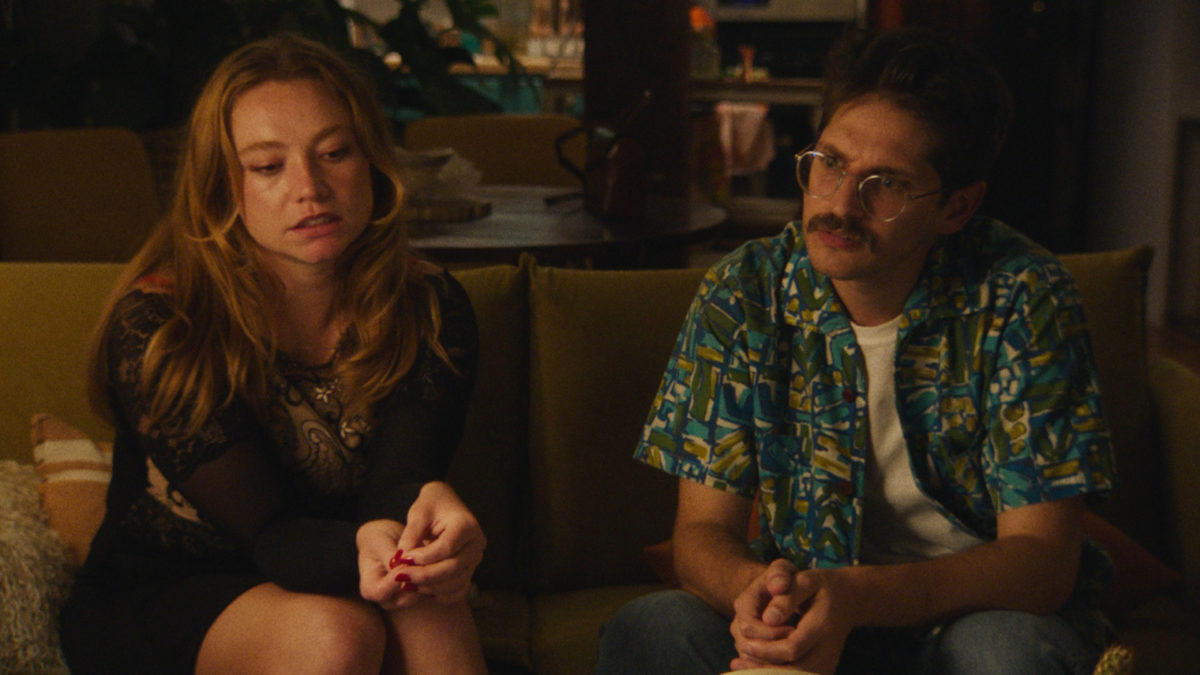
Free Time opens on an office meeting between Drew (Colin Burgess) and his boss. Drew is dissatisfied with his data-analysis position because it’s too much data entry and too little analysis. “The computers do all of the analysis for you now. It’s really just… data,” he laments. The meeting ends unexpectedly with Drew surprising himself (and his boss) by putting in his two weeks notice. It’s a savvy cold open that clues us into Drew’s lack of self-awareness being a source of amusement in the narrative to follow. – Caleb H. (full review)
Where to Watch: VOD
Furiosa: A Mad Max Saga (George Miller)

Furiosa was always going to live or die on the strength of its chase scenes; credit to Miller and his team for coming up with a new box of tools here. The War Rig, for one, is given a shiny update, complete with two auxiliary grappling arms and a tassel of maces that hang from the back, simply begging to be spun around. (Better still: the chasing pack have learned how to glide.) Miller’s most radical act in Furiosa is to momentarily pare things down: its incredible opening sequence makes do with no more than four motorbikes, a sniper rifle, and the wide expanse of the desert. It’s static, minimal, strangely beautiful, and the best part of a film that often struggles to recreate such magic. It also proves an early warning sign of Furiosa‘s more orderly aesthetic––a considerably less-gritty approach that lends some of the action a striking sense of clarity but makes much of the CGI look quite motion-smoothed and a little janky. – Rory O. (full review)
Ghostlight (Kelly O’Sullivan and Alex Thompson)
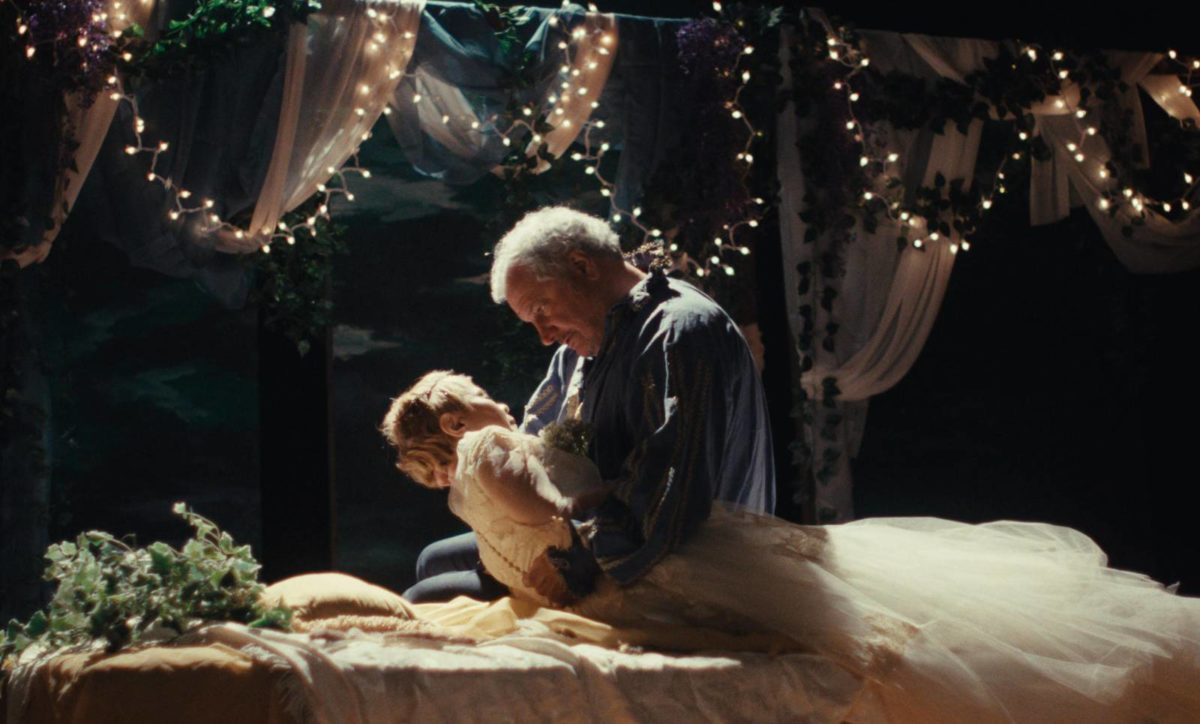
A masterfully crafted work with nearly no false notes, Kelly O’Sullivan and Alex Thompson’s Ghostlight is a tender drama bearing profound moments of humor and small triumphs. The smartly constructed script by O’Sullivan buries the lede, revealing new narrative information with each layer as we watch a nuclear family slowly come apart and, later, find solace in the wake of their son’s suicide. Anchored by a real-life family, the film feels as if it’s been meticulously workshopped with the same intimate collaboration that gave O’Sullivan and Thompson’s last feature, Saint Frances, its authentic nuances. – John F. (full review)
Where to Watch: VOD
Here (Bas Devos)
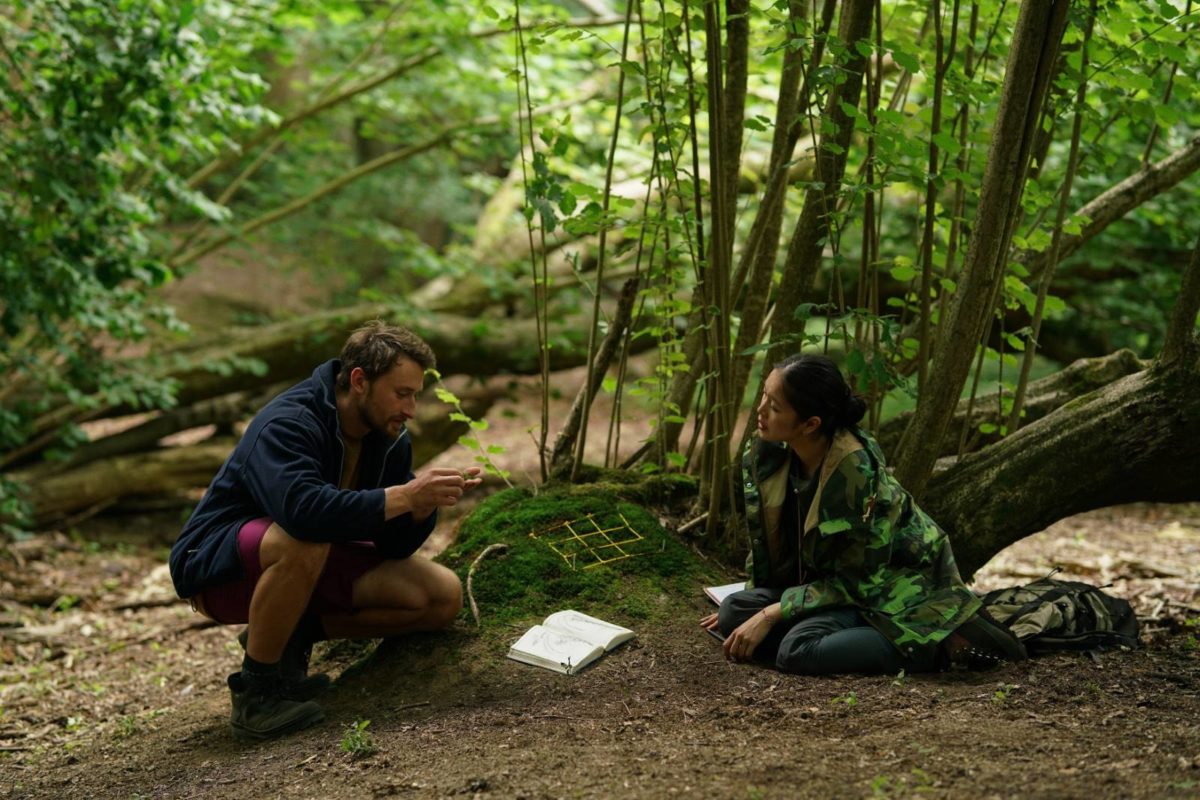
For anyone keeping tabs on Bas Devos’ career, it’s notable that the drama of his latest film Here is set in motion by something as benign as a pot of soup. A charming portrait with a flânuerial spirit, the film follows a Brussels-based Romanian construction worker who, having decided to move home, cooks what’s left in his fridge, packages it up, then gifts it to family, friends and––much later––a Belgian-Chinese woman doing a PhD in moss. She is played by Liyo Gang and he is played by Stefan Gota. It’s 81 minutes long, has relatively little dialogue, and tugs the heartstrings in all the best ways. It might be the most benevolent film of this year. – Rory O. (full review)
Where to Watch: The Criterion Channel, VOD
His Three Daughters (Azazel Jacobs)
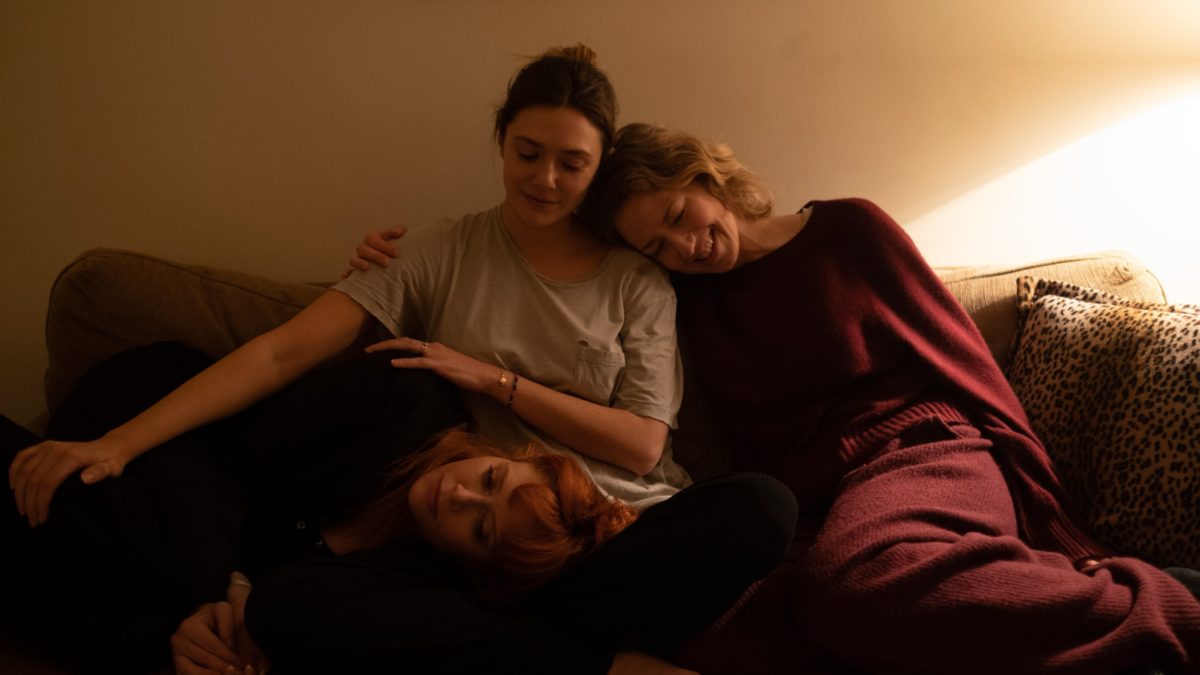
Absence is at the center of His Three Daughters, Azazel Jacobs’ latest film. It’s set almost entirely in a small New York City apartment as three sisters reunite to care for their ailing father in his final days, and Jacobs never lets us see inside his room. The camera stays largely in common areas where the three leads argue, cry, reconcile, and come to terms with living in a world where the one thing tying them together no longer exists. Barring some divisive final-act choices, it’s a powerful work with a smart screenplay and three terrific performances that capture the messy nature of families going through a grieving process. – C.J. P. (full review)
Where to Stream: Netflix
Hit Man (Richard Linklater)
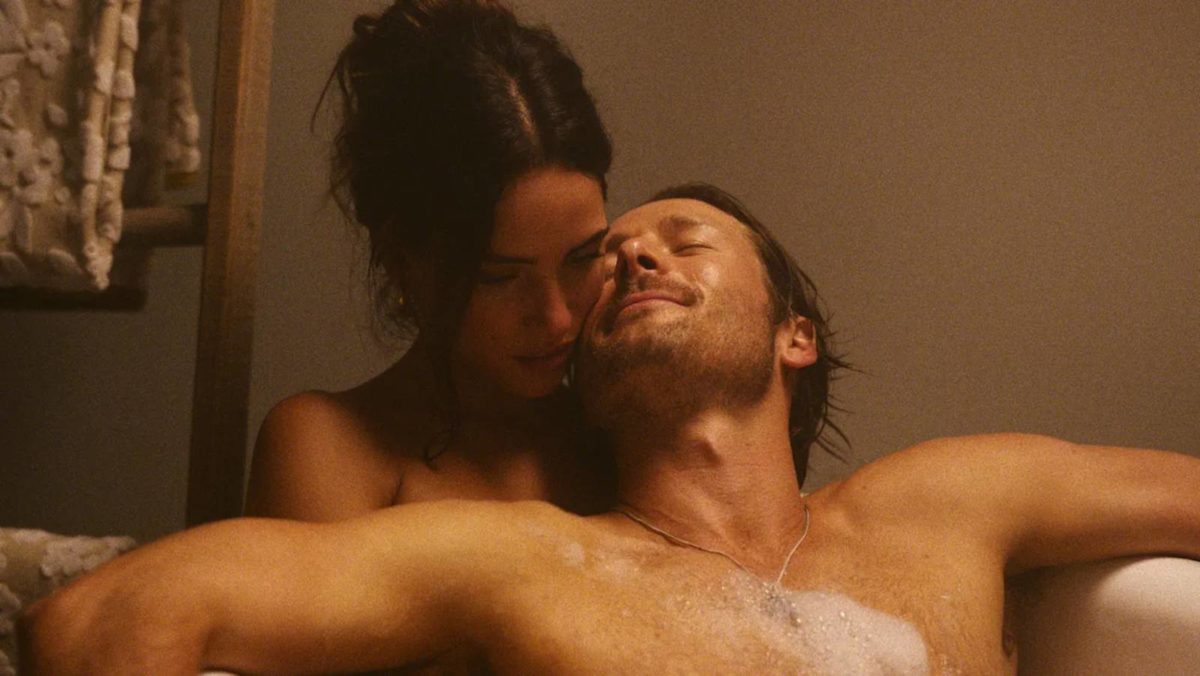
Hit Man, directed by Richard Linklater and co-written by Glen Powell, is a balm. It’s soothing and refreshing. Featuring magnetic chemistry between its two leads (Powell and Adria Arjona), a premise built for ease of enjoyment, and a slew of funny supporting characters (Retta the all-star among them), this film will brighten your weekend, deepen your date night, or just make you feel happy for a couple of hours. – Dan M.
Where to Watch: Netflix
Horizon: An American Saga – Chapter 1 (Kevin Costner)
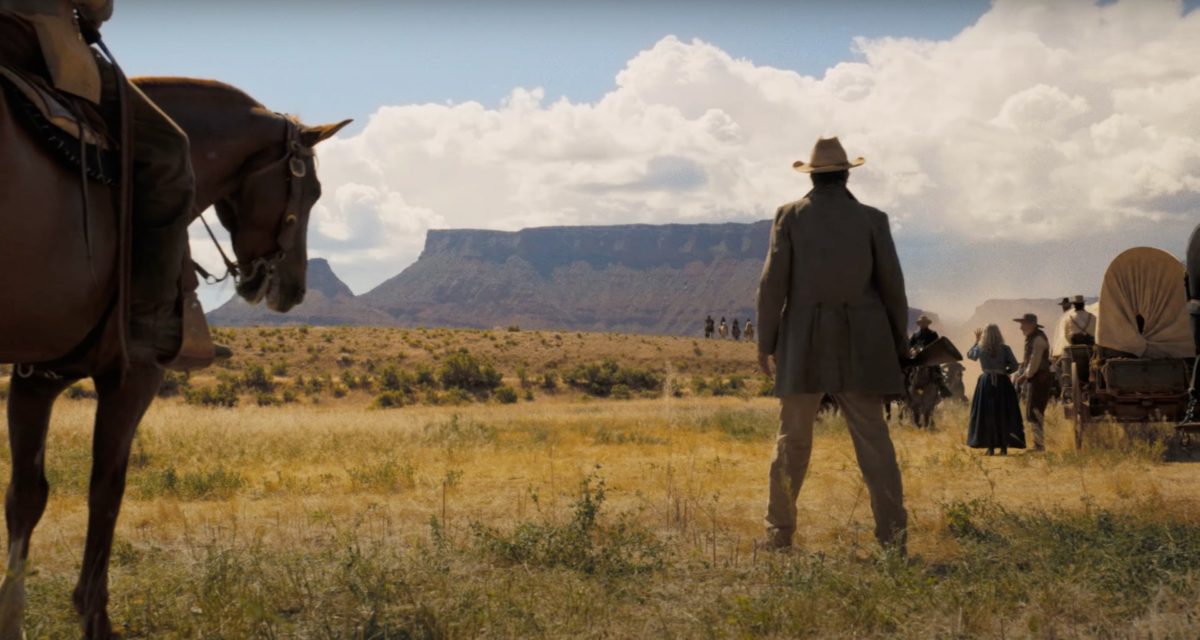
Everything that emerged in the lead-up to Horizon––the project’s scale, its runtime (181 minutes), the colon and hyphen in its title––has been pointing to one word; but calling something ‘epic’ has less to do with quantity than some movies would like us to think. In the most sweeping sequences of Dances with Wolves, Costner left the character all alone on the plains, dwarfed by the landscape and increasingly aware of his own place in it. Horizon, by contrast, seldom takes that kind of time to think. There’s a distinct lack here, too, of cinematic urgency, the sense that, regardless of length, there is somewhere the film needs to get to. The resulting feeling of watching Horizon will be familiar to anyone who’s ever binged a prestige show; but if that is a snag the viewer’s willing to overcome, Costner leaves plenty to enjoy. – Rory O. (full review)
Hundreds of Beavers (Mike Cheslik)
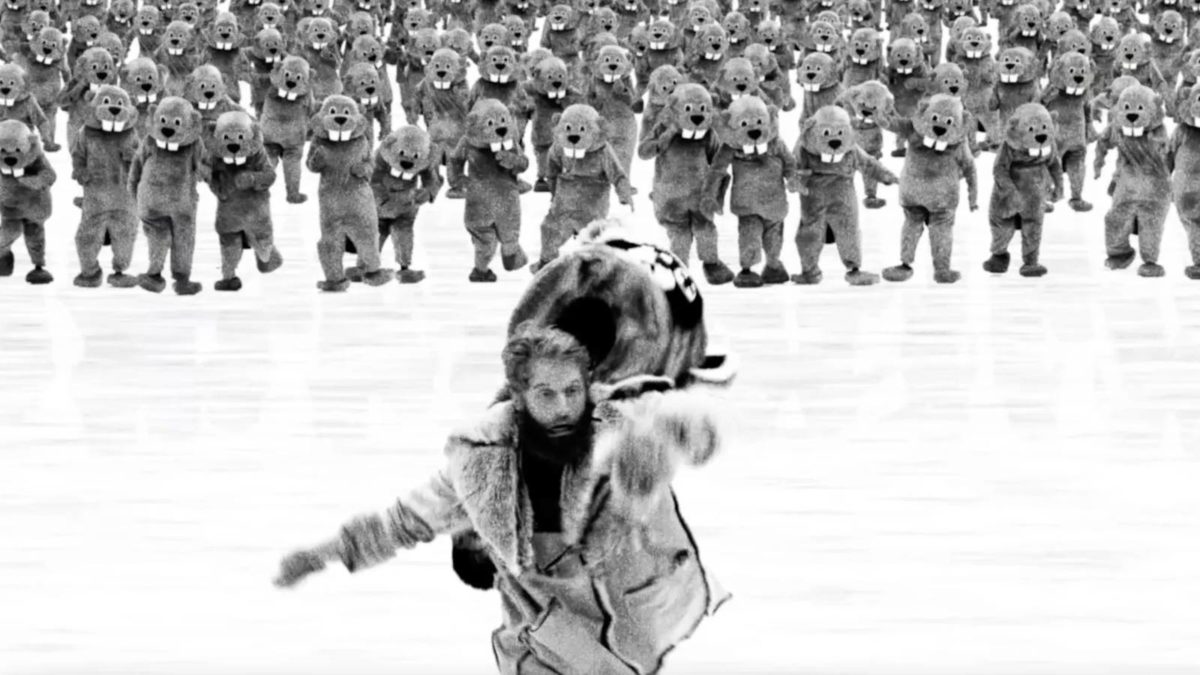
A film that more than delivers on the promise of its title, the plot of Hundreds of Beavers couldn’t be simpler: an applejack salesman attempts to outsmart, yes, hundreds of pesky critters to break into the fur-trapping game. That simplicity makes for a sandbox of endless imagination as we witness escalating hijinks that often find our lead on the losing side of the battle in hilariously agonizing ways. With an enduring love for silent-era slapstick comedy set against a homespun landscape that could be pulled from a Guy Maddin feature, it’s rather remarkable that the aesthetic only wears slightly thin. Rather, one comes away from the adventure with an invigorating sense that with enough creativity, the time-worn tricks of classic cinema can feel new again. – Jordan R.
In a Violent Nature (Chris Nash)
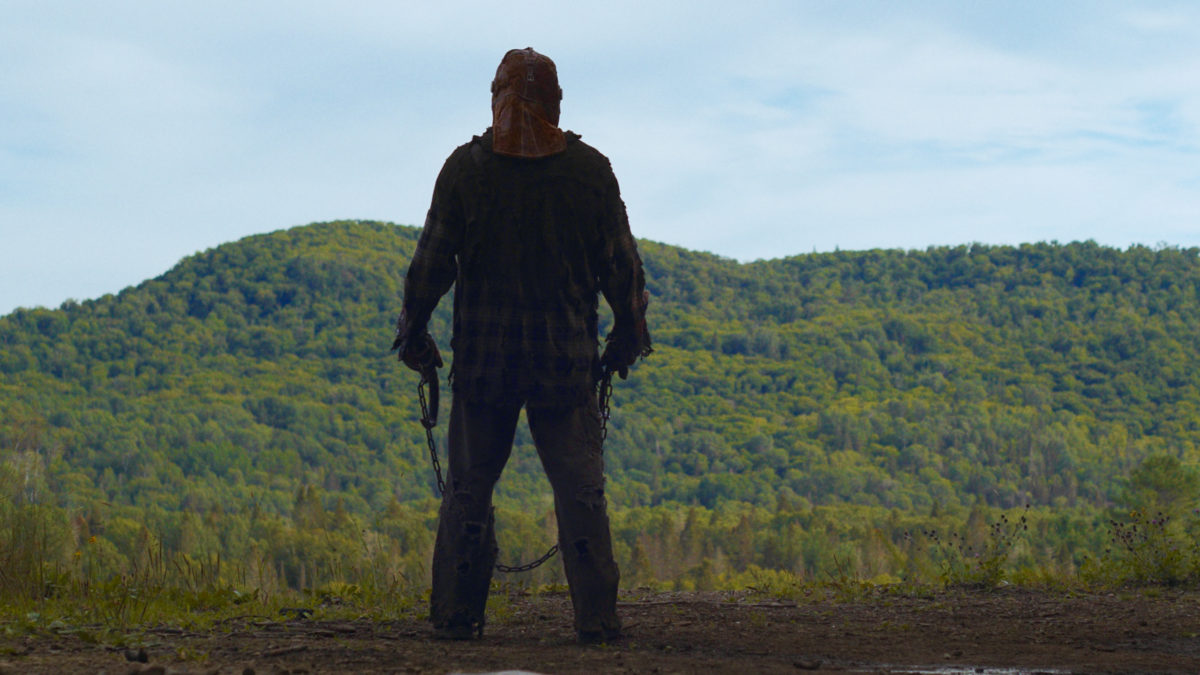
What new perspective can one bring to the horror genre? With his directorial debut, Chris Nash gives this question its resoundingly brutal, formally fascinating answer. Primarily following a murderer’s steps and slashes through his travels terrorizing those near a remote cabin, the wonderfully Béla Tarr-esque In a Violent Nature sticks to its meticulous conceit and delivers one of the most chilling horror movies I’ve seen in years. – Jordan R.
Inside the Yellow Cocoon Shell (Phạm Thiên Ân)
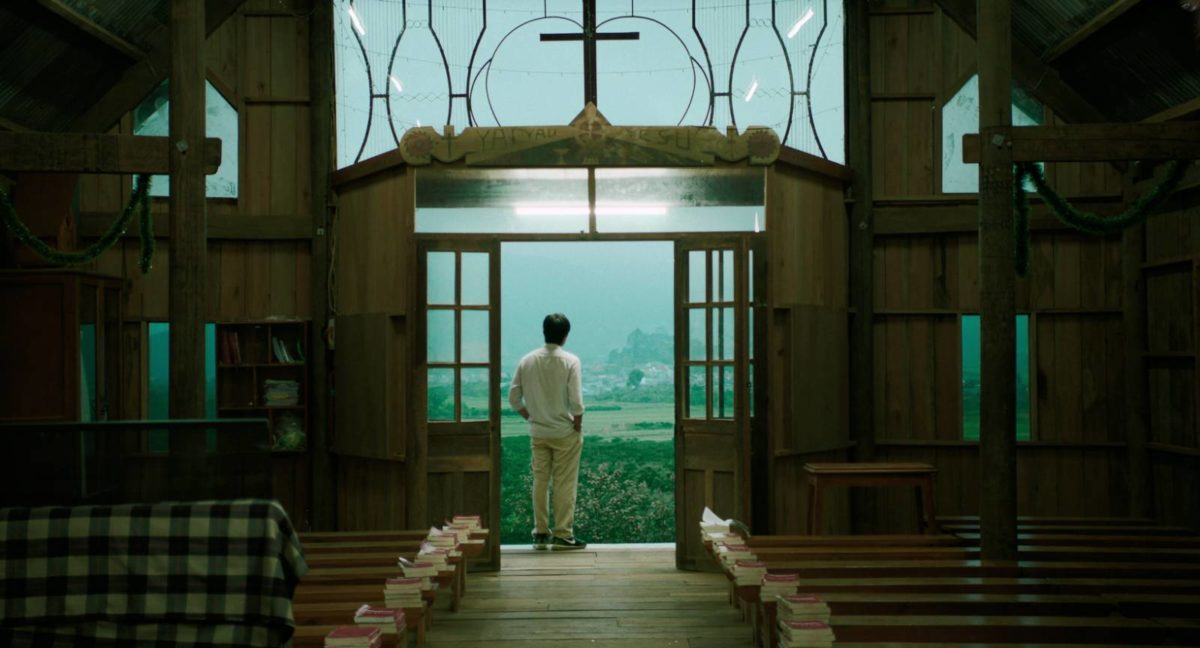
Early into Phạm Thiên Ân’s sprawling, stupefying Inside the Yellow Cocoon Shell, there’s a shot that manifests Caravaggio inside a shack in rural Vietnam. Having traveled from Saigon to his home village to attend the funeral of his sister-in-law, Thien (Le Phong Vu) is visiting a local elder who sowed a shroud for the departed. The twenty-something wants to pay for the service; the old man doesn’t take money from neighbors. He does accept the company, though, and very generously spills a whole cascade of memories from the Vietnam War, laying bare an old bullet scar on his ribcage. And as Thien bends to graze the bruised skin under the warm, caliginous light, Pham frames the moment as one of reverential awe, an image modeled off of Caravaggio’s “The Incredulity of Saint Thomas.” It’s a beautiful shot in a film full of them. That it comes near the end of a particularly intricate 24-minute take is a testament to Pham’s mastery of craft; that this three-hour odyssey is only his first feature only adds to the wonder. – Leonardo G. (full review)
Where to Watch: Kino Film Collection, VOD
I Saw the TV Glow (Jane Schoenbrun)
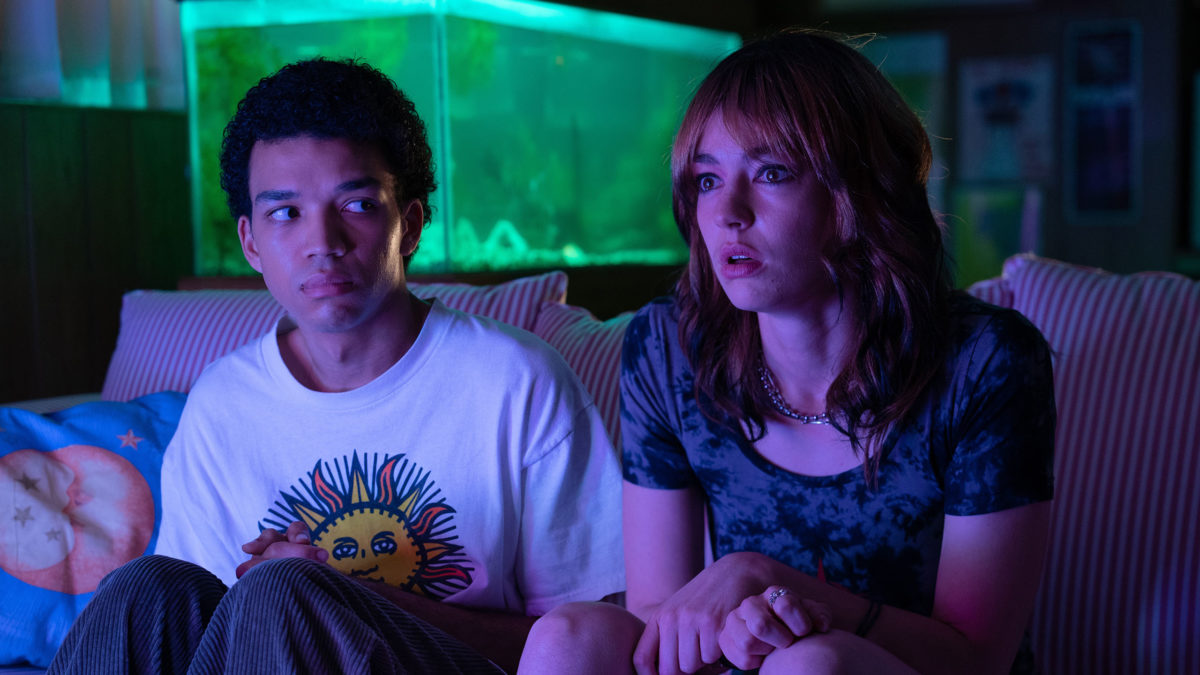
Tender yet rageful, quiet yet deafening, intimate yet expansive, Jane Schoenbrun’s I Saw the TV Glow is a towering achievement of total artistic freedom, the kind of work where certain images will be eternally burned into your mind and the feelings it exudes will linger far after the credits roll. Expanding the aura of loneliness from We’re All Going to the World’s Fair into a vastly more ambitious, layered canvas, Schoenbrun’s third feature tells the story of Owen, played early on by Ian Foreman and later by Justice Smith in a revelatory performance. Following the isolated journey of questioning his identity through childhood and adulthood, we witness his special infatuation with a late-night TV show and the ineradicable bond it creates with another lonely soul, Maddy (Brigette Lundy-Paine). The deeply expressive, imaginative ways in which Schoenbrun is able to articulate one’s struggle with identity is nothing short of staggering. This may not be a horror film in the conventional sense––in fact, every directorial decision assertively refutes convention––but I Saw the TV Glow emphatically argues nothing is more terrifying than being trapped in a body you don’t desire and having no words to properly express the feeling. – Jordan R. (full review)
Last Summer (Catherine Breillat)
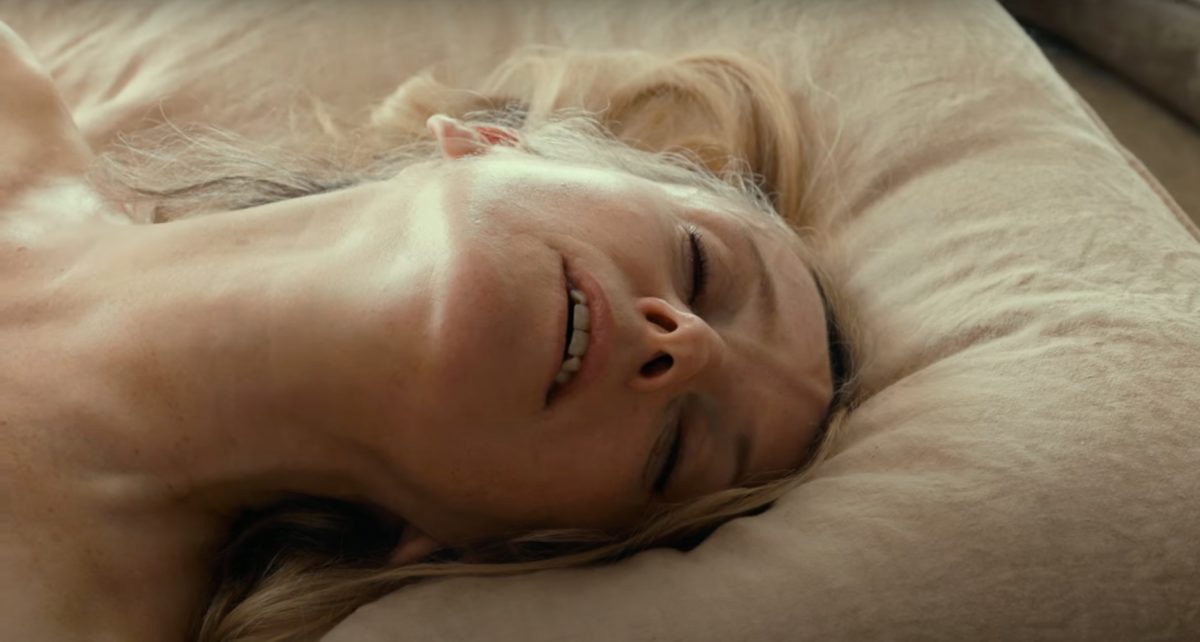
Anne (Léa Drucker) is an esteemed lawyer: as uncompromising as she is in her line of work, she is free to enjoy her private life. In her ’40s she has it all, the job and the family she never thought would come. So begins Catherine Breillat’s newest film, Last Summer, which may be a remake of May el-Toukhy’s 2019 adulterous drama Queen of Hearts, but yields to the French filmmaker’s every wish. Even though we never get any backstory to Anne’s character, it’s hinted that her youth was not a pleasant one, as an early abortion took away the possibility to have children of her own. But now, in the summer of her life, she is a mother of two adopted girls and stepmother to an unruly teenager named Théo (Samuel Kircher), from her husband Pierre’s (Olivier Rabourdin) previous marriage. Amidst the idyllic rituals of daily life in the countryside, Anne seems composed and satiated. She is not one to look for trouble. – Savina P. (full review)
Where to Watch: VOD
Janet Planet (Annie Baker)
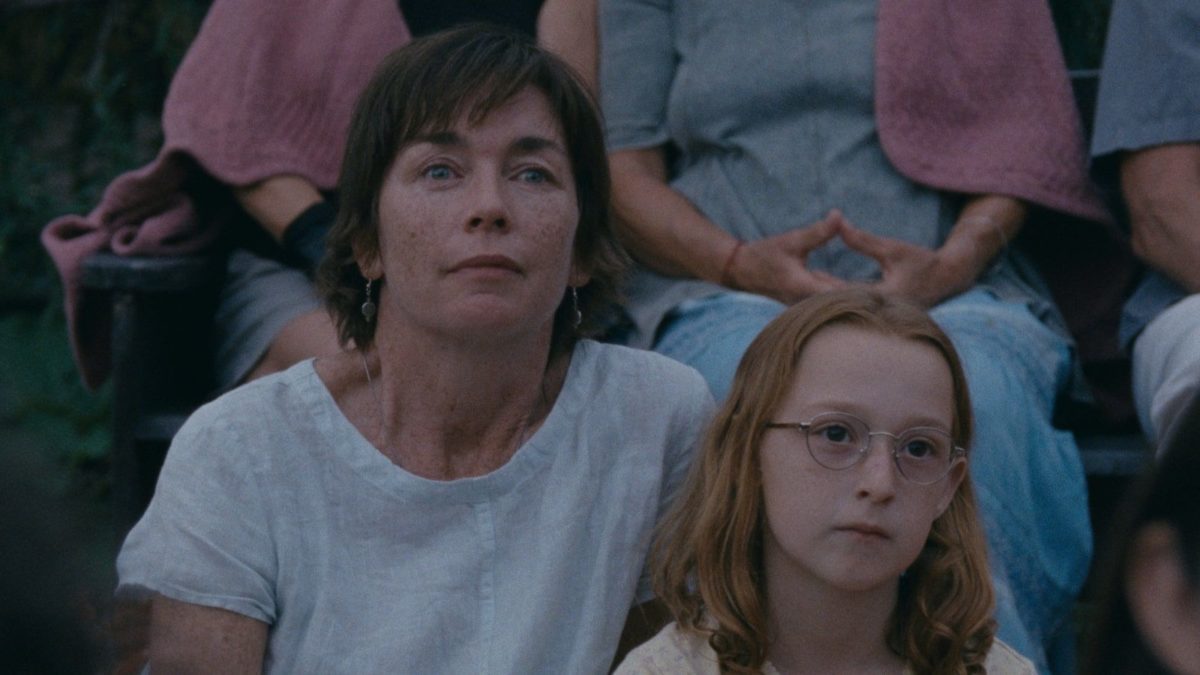
About halfway through playwright Annie Baker’s self-assured and pitch-perfect directorial debut Janet Planet, 11-year-old Lacy (Zoe Ziegler) rolls over in bed and turns to her mother Janet (Julianne Nicholson) with an innocent prompt. “You know what’s funny?” she asks. “Every moment of my life is hell.” At such a gentle moment, in such a casual way, she delivers a melodramatic gut-punch. You can’t help choking out a laugh. – Jake K-S. (full review)
Where to Watch: VOD
Made in England: The Films of Powell and Pressburger (David Hinton)
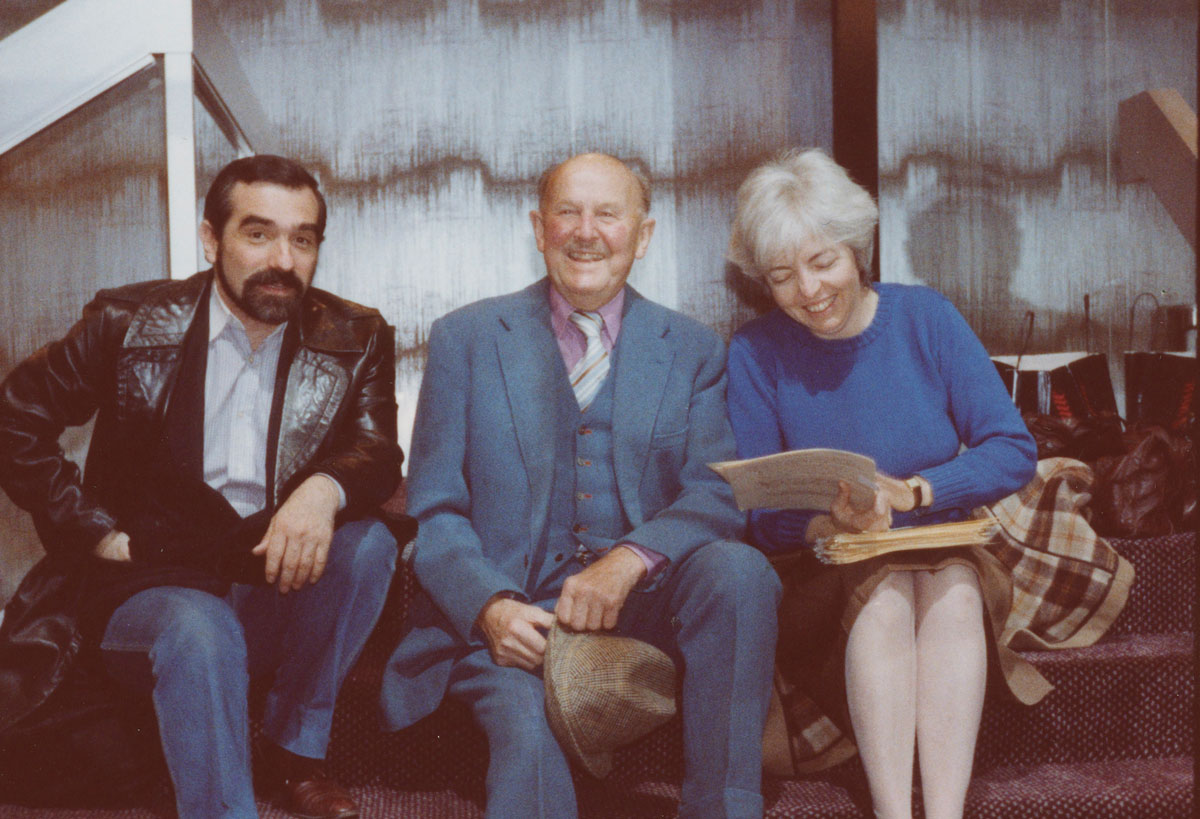
There’s an argument to be made that the single image which best exemplifies pure cinematic wonder is the Archers logo. The introductory title reel belonged to the production company of Michael Powell and Emeric Pressburger, a guarantee that whatever film followed would whisk the viewer away to a world of ecstatic imagination. The British filmmaking duo delivered sweeping, epic tales on a vibrant cinematic canvas painted with a style uniquely their own, and often found themselves on the periphery of their country’s popular cinema during their careers. While they came to be appreciated in the decades that followed the peak of their creative output, they have long passed, so David Hinton’s riveting new documentary Made in England: The Films of Powell & Pressburger brings the most qualified voice possible to speak on their contributions to the medium: Martin Scorsese. – Jordan R. (full review)
Where to Stream: VOD
The People’s Joker (Vera Drew)

It’s a genuine miracle that The People’s Joker has managed to make it to screens unscathed, especially considering the legal battles which dogged the 2023 TIFF premiere could easily have left it trapped in the vault forever. Many of the rave reactions from that festival were written solely within the context of such lingering threat, with many critics doubling-up as armchair legal experts, not analyzing the qualities of Vera Drew’s film so much as they were assessing the likelihood of whether anybody else would ever see it. Now that this unauthorized take on the DC mythos is defiantly arriving on screens––albeit with a lengthy legal scrawl preceding the action itself––it’s immediately obvious that writing about it solely within the context of whether it constitutes a serious copyright violation is something of an insult. – Alistair R. (full review)
Where to Watch: VOD
Rebel Ridge (Jeremy Saulnier)
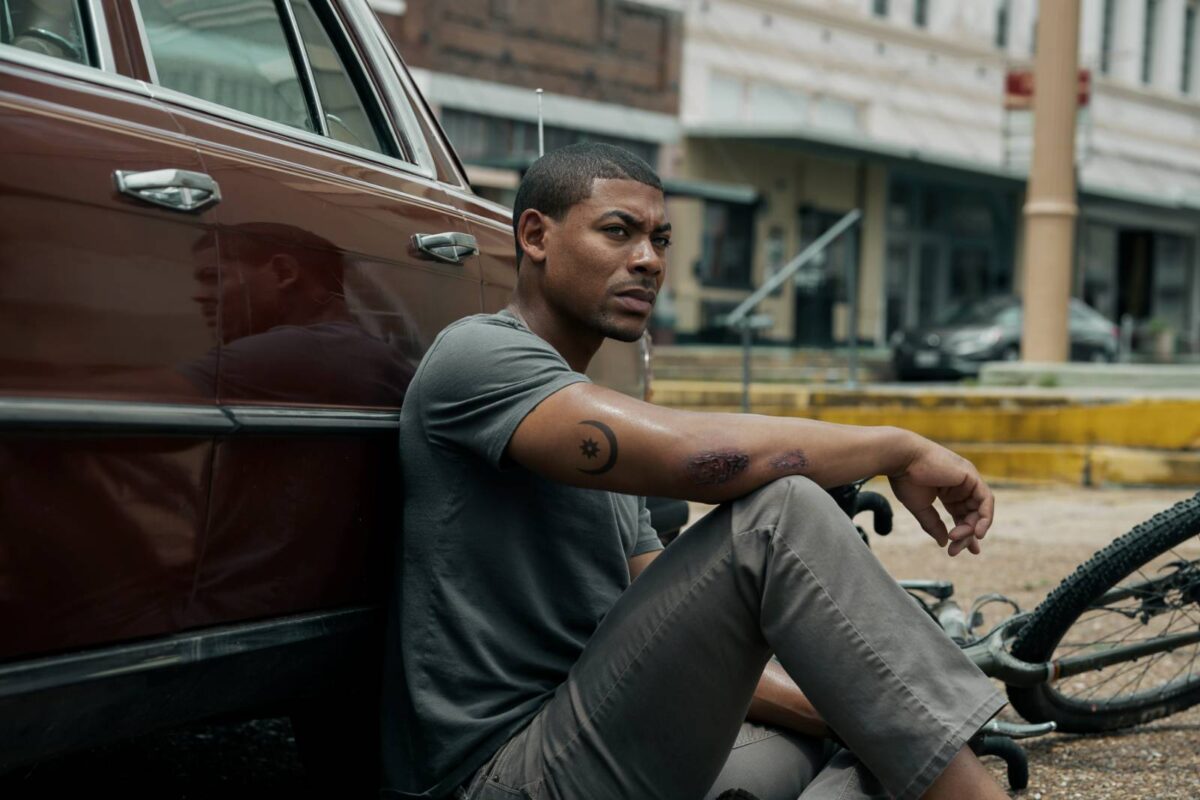
A ruthlessly efficient thriller fueled by boiling rage, Jeremy Saulnier’s Rebel Ridge wastes no time setting the stakes. Terry Richmond (Aaron Pierre) is listening to metal music on his headphones, biking into the fictional small town of Shelby Springs, Louisiana, when a police cruiser crashes into him, forcing a tumble to the ground. He sold his car and a stake in a restaurant he had. With the resulting $36K in cash, he was on his way to bail out a cousin incarcerated for possession of marijuana. From the police’s point of view, he had been evading arrest over the two miles they’d tailed him. Despite only giving him a traffic violation, they enact civil asset forfeiture, seizing all of his cash under the suspicion it may be drug money. This sets the mysterious, resourceful, strong-willed Terry on a mission of combating this police corruption and overreach by any means necessary to make things right. – Jordan R. (full review)
Where to Stream: Netflix
Red Rooms (Pascal Plante)

Arriving more than a year after its Karlovy Vary premiere, Canadian thriller Red Rooms feels most like a dark companion piece to Saint Omer in its perspective-shifting analysis of a courtroom observer, although that’s where the similarities end. Director Pascal Plante’s tale of true-crime obsession pushed to one of its most uncomfortable logical extremes doesn’t attempt to rip up the rulebook of how courtroom dramas operate so much as it tries grappling with the sensationalized allure of murder cases, and the disastrous consequences of third-party observers feeding off the personal trauma of others. That it manages to be so critical whilst succeeding as a nihilistic thriller at face value––albeit one closer in tone to Olivier Assayas’ Demonlover than David Fincher, to whom it has been regularly compared––is its greatest achievement, a stealth satire of which Paul Verhoeven would be proud. – Alistair R. (full review)
Where to Stream: VOD
Ryuichi Sakamoto | Opus (Neo Sora)
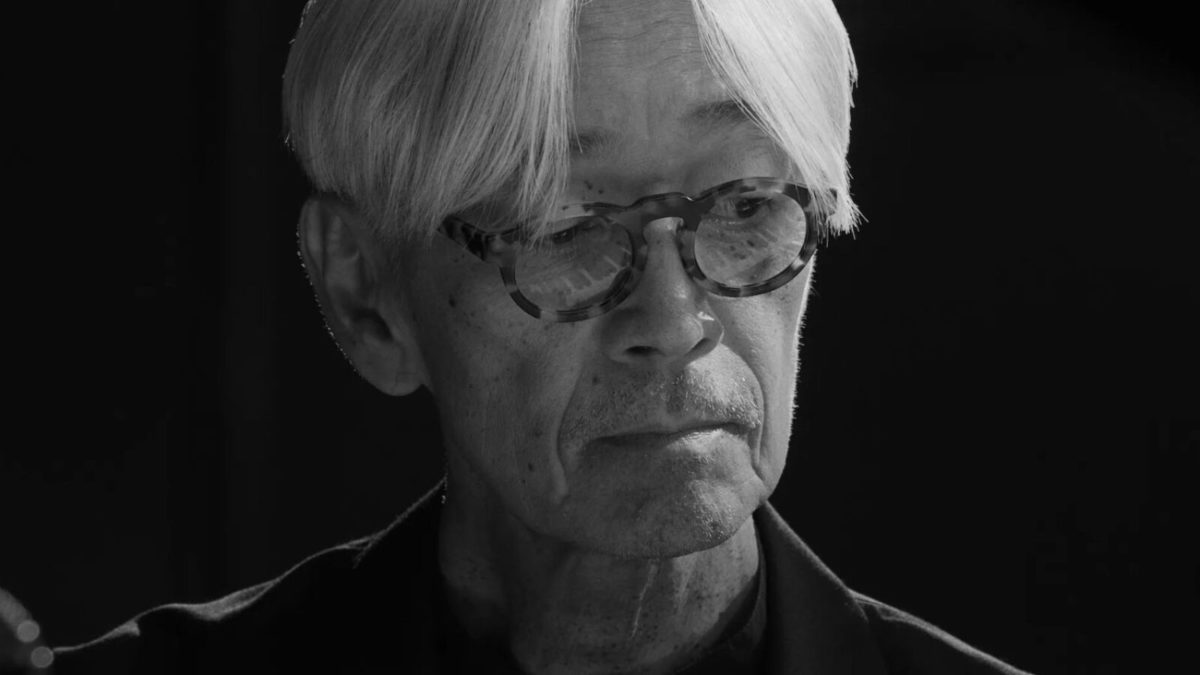
In a heartbreaking work that feels like a private personal home movie that the world is being graced with, Ryuichi Sakamoto’s son, filmmaker Neo Sora, captured one of his father’s final performances. Shot in beautifully austere black-and-white, Ryuichi Sakamoto | Opus focuses solely on the music, capturing a man contending with his physical limitations in what amounts to one of the final offerings of his astounding talent. It’s a treasure. – Jordan R.
Where to Watch: The Criterion Channel, VOD
Trap (M. Night Shyamalan)
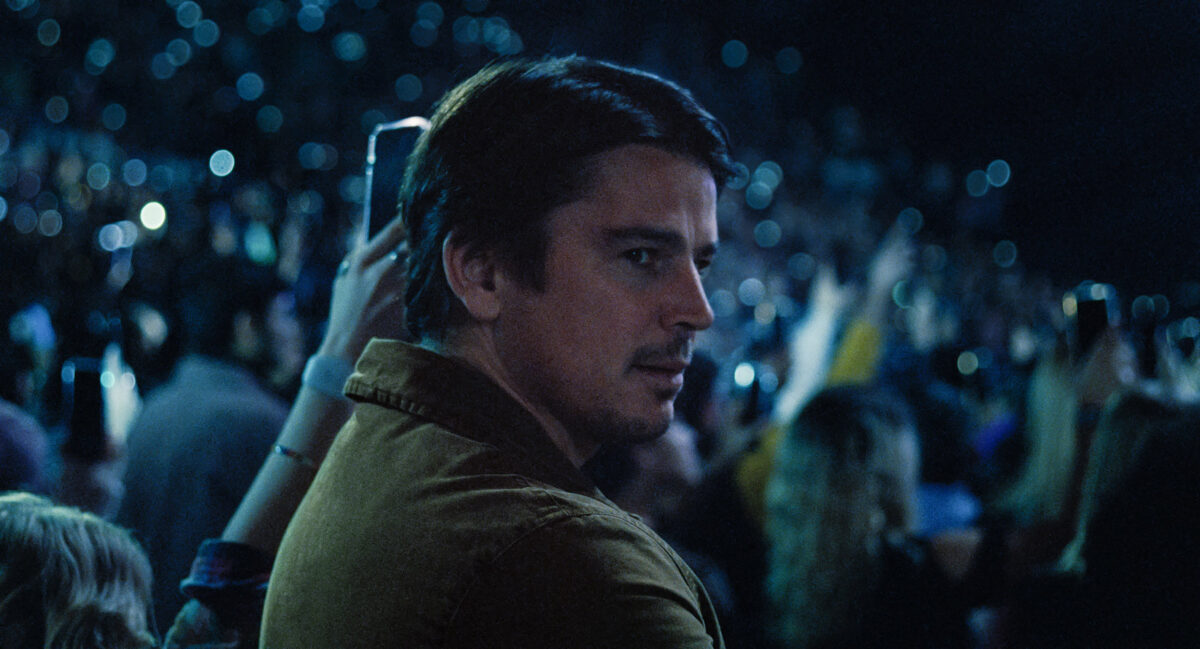
Far be it from me to say Shyamalan needs further reclamation or defense––I might instead point you to the most deranged, overcompensating discourse ever waged on behalf of a director––except to argue Trap’s legion pleasures aren’t disconnected from the satisfaction of watching his specific talents meet a distinctly entertaining premise. And if not quite some turning point in Shyamalan’s oeuvre, watching it suggests a coinciding fulfillment of his earlier cultural dominance with the thoroughgoing security established since The Visit defibrillated his career nearly a decade ago. Even at a pace or two too long, while starting to coast on the pure rush of initial, stronger ideas, it’s perhaps his best-engineered work since The Village and arguably the purest piece of entertainment he’s ever made. – Nick N. (full review)
Where to Stream: VOD
The Wild Robot (Chris Sanders)
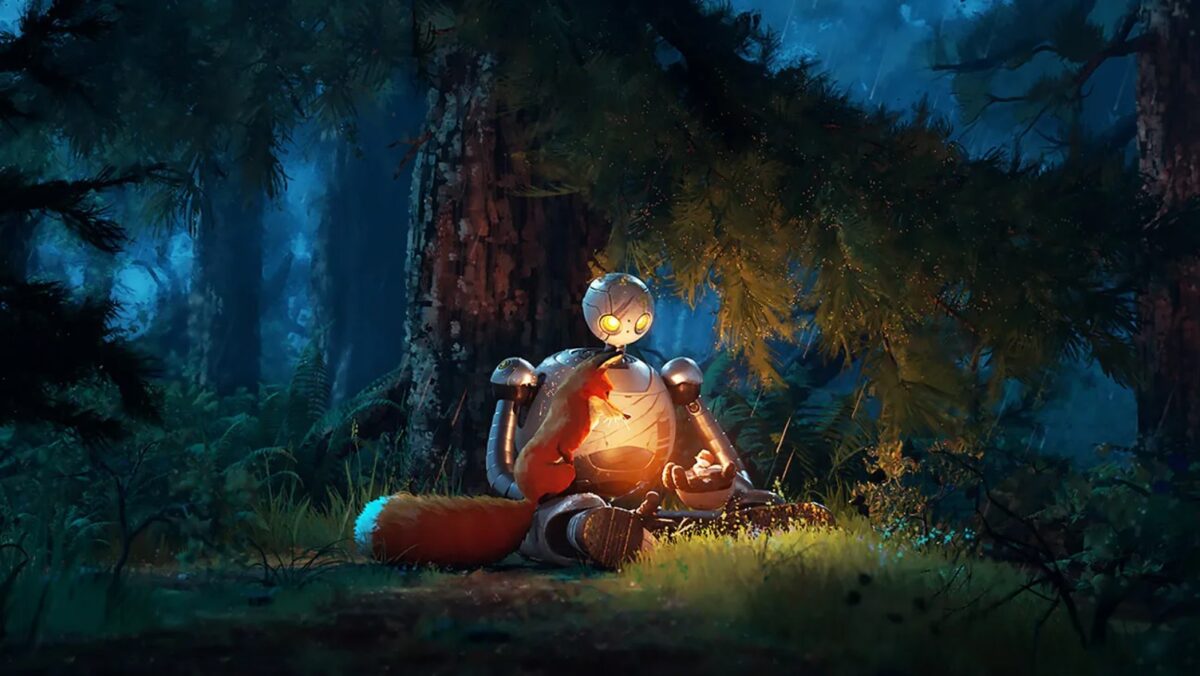
The best studio animation of the year by quite a wide margin, The Wild Robot is an adventure as wondrous as it is heartfelt. Exploring the trials, tribulations, and joys of parenting through the story of a stray robot in the wilderness, Sanders nails the emotional throughline to create a stirring, human-free experience. While the script could have used perhaps a bit more specificity, what it lacks in originality, it makes up for in earnestness and craft, chock full of detailed environments and wonderful character design. – Jordan R.
Where to Stream: VOD
More Films to See
Apple TV+
Fancy Dance
Girls State
The Criterion Channel
Chicken for Linda!
Pictures of Ghosts
Hulu
Babes
Kinds of Kindness
Kino Film Collection
The Old Oak
Max
Civil War
Dune: Part Two
Hayao Miyazaki and the Heron
Love Lies Bleeding
Metrograph at Home
Knit’s Island
MUBI
Blackbird Blackbird Blackberry
Crossing
Dad & Step-Dad (and Tubi)
Dogleg
Gasoline Rainbow
How to Have Sex
Humanist Vampire Seeking Consenting Suicidal Person
My First Film
The Practice
Riddle of Fire
The Settlers
This Closeness
Netflix
Daughters
It’s What’s Inside
Power
Will & Harper
Woman of the Hour
Peacock
The Bikeriders
Dìdi (弟弟)
Prime Video
Challengers
Drive-Away Dolls
Snack Shack
VOD
Chronicles of a Wandering Saint
Cuckoo
The Dead Don’t Hurt
Flipside
Green Border
Kneecap
The Last Stop in Yuma County
Longlegs
ME
Mountains
National Anthem
Nowhere Special
The Shadowless Tower
Twilight of the Warriors: Walled In
The post Where to Stream the Best Films of 2024 first appeared on The Film Stage.



